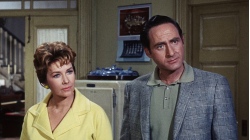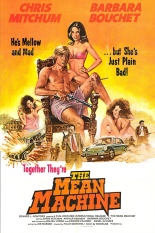
 Hell hath no fury like Robert Mitchum’s puppy-faced, denim jacket-donning second son sporting a Dutch Boy ‘do. Christopher Mitchum stars as the not so suavé Ricco, a young man out for revenge after getting sent to prison on phony charges. The man responsible, Don Vito (Arthur Kennedy, Fantastic Voyage), not only did that, but took over his murdered pop’s organization and has been balling his woman!
Hell hath no fury like Robert Mitchum’s puppy-faced, denim jacket-donning second son sporting a Dutch Boy ‘do. Christopher Mitchum stars as the not so suavé Ricco, a young man out for revenge after getting sent to prison on phony charges. The man responsible, Don Vito (Arthur Kennedy, Fantastic Voyage), not only did that, but took over his murdered pop’s organization and has been balling his woman!
Out a year early for good behavior, Ricco’s itching for some bad behavior, and who can blame him? I would, too, if my sultry, go-go dancing girlfriend (Malisa Longo, White Emanuelle) were cheating on me with Don Vito, a middle-aged, wispy-‘stached exporter of soap and dope. Ricco’s real aim isn’t winning Rosa back, but finding out who blew his dad’s brains out. (That mystery is one you could solve right now by guessing.)
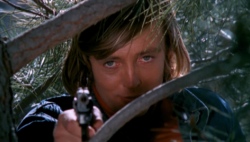 Aiding our hero is the scintillating Scilla (Barbara Bouchet, Caliber 9), a niece of Ricco’s old counterfeiting buddy and quite the con woman herself. Her skills give Mean Machine one of its two most memorable scenes, in which she performs a striptease on a foggy bridge at night to lure two of Don Vito’s goons out of their car.
Aiding our hero is the scintillating Scilla (Barbara Bouchet, Caliber 9), a niece of Ricco’s old counterfeiting buddy and quite the con woman herself. Her skills give Mean Machine one of its two most memorable scenes, in which she performs a striptease on a foggy bridge at night to lure two of Don Vito’s goons out of their car.
The other is after another goon is caught canoodling with Rosa, so Don Vito orders his men to cut the poor sap’s genitals off and shove ’em in his mouth before dumping the guy in the soap factory’s pit of bubbling lye. Director Tulio Demicheli (Sabata the Killer) doesn’t shy away from portraying these acts — and their icky aftermath — in graphic detail, at least in the unrated cut, which makes the Italian crime entry a cut about the crap. Mitchum sure doesn’t have the presence to carry the film, so Demicheli lets the violence do the talking when the sex isn’t doing the doing; the prologue alone seems to off nearly as many men as the movie has minutes. —Rod Lott

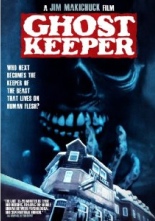
 When the Canadian horror film
When the Canadian horror film 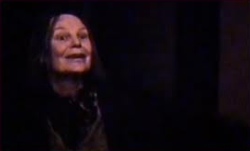

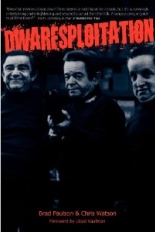
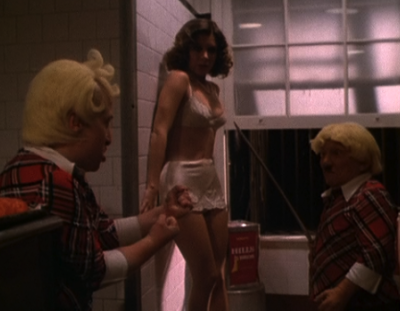 You’re not going to get deep insight into the films featured. That’s not the point. The point is celebrating the little guy, in an easygoing manner that’s both affectionate and amusing. For example, take this sentence from their look at
You’re not going to get deep insight into the films featured. That’s not the point. The point is celebrating the little guy, in an easygoing manner that’s both affectionate and amusing. For example, take this sentence from their look at 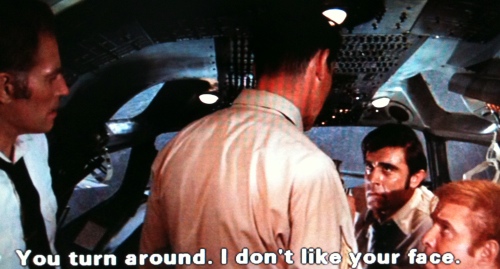
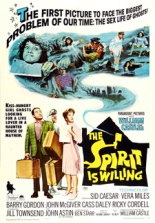
 Leave it to William Castle to turn a triple homicide into the basis for a comedy. The result is
Leave it to William Castle to turn a triple homicide into the basis for a comedy. The result is 